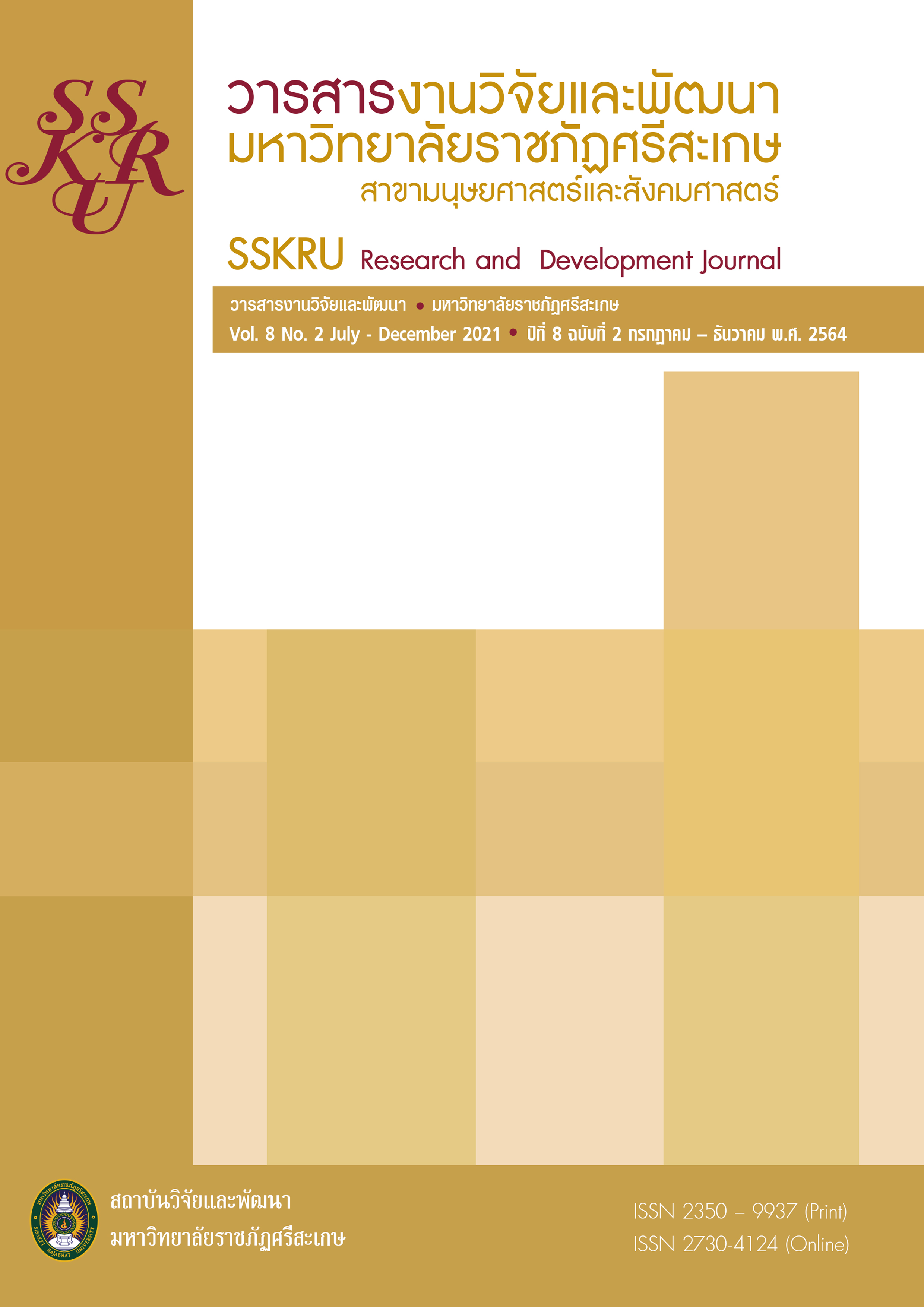The Development a Digital Citizenship Scale for Junior High School Students
Main Article Content
Abstract
Developing a digital citizenship scale for junior high school students. The aim is to create and determine the quality of a digital citizenship scale for junior high school students. The sample group consisted of 108 lower secondary school students. The research instrument was the Digital Citizenship Scale for Lower Secondary Students. Divided into two parts. Part one is general information of the respondents. The second part is a digital citizenship scale. There were 34 questions. It is a 5-level estimator (most practice (5) - least practical (1)), consisting of 3 components: 1) Respect for yourself and others in the digital world. 2) Be responsible by using digital. 3) Create digital innovation. Data were analyzed by estimating the internally consistent sentiment.
The results revealed that the digital citizenship scale for high school students There was a high confidence value of 0.921 and the structural validity of the digital citizenship scale was examined. By second corroborative component analysis, the model was consistent with the empirical data (Chi-square = 28.452, df = 22, P = 0.1612, RMSEA = 0.052, CFI = 0.993, TLI = 0.989, SRMR = 0.026.)
Article Details
This article is published under a Creative Commons Attribution-NonCommercial-NoDerivatives 4.0 International License (CC BY-NC-ND 4.0), which allows others to share the article with proper attribution to the authors and prohibits commercial use or modification. For any other reuse or republication, permission from the journal and the authors is required.
References
กาญจนา เดชสม และ รุงชัชดาพร เวหะชาติ. (2564). การพัฒนาความเป็นพลเมืองดิจิทัลของนักเรียนในศตวรรษ ที่ 21. PAYAP UNIVERSITY JOURNAL, 31(1), 151-163.
ต้องตา จำเริญใจ. (2561). ความเป็นพลเมืองดิจิทัลของนักเรียนชั้นประถมศึกษาปีที่ 1-6 ของโรงเรียนในสังกัดสำนักงานเขตพื้นที่การศึกษาประถมศึกษาเพชรบูรณ์ เขต 3. ปริญญานิพนธ์ปริญญา
ดุษฎีบัณฑิต สาขาวิชาการบริหารการศึกษา คณะครุศาสตร์อุตสาหกรรมมหาวิทยาลัยเทคโนโลยีราชมงคลธัญบุรี.
พรชนิตว์ ลีนาราช. (2557). รูปแบบบริการสนับสนุนการวิจัยสำหรับห้องสมุดมหาวิทยาลัยวิจัยในประเทศไทย. ปริญญานิพนธ์ปริญญาดุษฎีบัณฑิต มหาวิทยาลัยขอนแก่น.
วรรณากร พรประเสริฐ & รักษิต สุทธิพงษ์. (2562). ความเป็นพลเมืองดิจิทัลของนิสิตนักศึกษาระดับปริญญาตรีในสถาบันอุดมศึกษาของรัฐ. Journal of Education Thaksin University,19(2),
-117.
วิโรจน์ สารรัตนะ. (2556). กระบวนทัศน์ใหม่ทางการศึกษากรณีทัศนะต่อการศึกษาศตวรรษที่21. กรุงเทพฯ : หจก.ทิพยวิสุทธิ์ มหาวิทยาลัยขอนแก่น.
สํานักยุทธศาสตร์ สํานักงานพัฒนาธุรกรรมทางอิเล็กทรอนิกส์ กระทรวงดิจิทัลเพื่อเศรษฐกิจและสังคม. (2563). รายงานผลการสำรวจพฤติกรรมผู้ใช้อินเทอร์เน็ตในประเทศไทย ปี 2563
Thailand Internet User Behavior 2020. (พิมพ์ครั้งที่ 1). กรุงเทพฯ: สำนักพิมพ์กระทรวงดิจิทัลเพื่อเศรษฐกิจและสังคม.
Eric, S., & Jared, C. (2014). The New Digital Age: Reshaping the Future of People, Nations and Business. Brilliance Corp.


